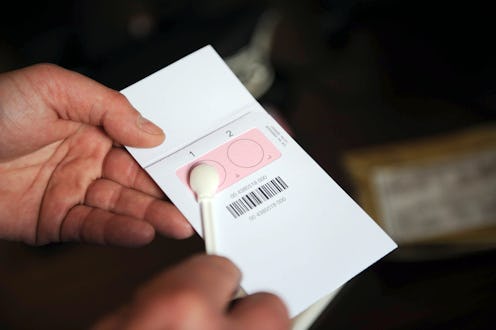News
Patricia Arquette Explains How Rapists Evade Jail
Brock Turner's lenient sentencing for sexual assault, for which he served only three months of a mere six-month jail sentence, sparked near-unanimous outrage across much of the country. But for actress Patricia Arquette, she knows that Turner's sentencing was "not an anomaly" but an unfortunate norm that often allows rapists to completely walk free. Arquette commented on Turner's sentencing and elaborated that countless rape kits go untested, thus contributing to the alarming way rapists are frequently kept out of jail.
Turner was convicted of three counts of felony sexual assault of an unconscious woman in January, and while his three months in jail is deplorably short and unfitting for the crime, Arquette said that the overwhelming majority of rapists don't serve any time at all. The actress, who also served as an executive producer on the forthcoming documentary Equal Means Equal , which highlights women's federal equality, said that, shockingly, only 3 percent of rapists ever serve time for their offense.
This statistic, she said during her Chelsea interview, is evident of a larger issue with the criminal justice system as a whole; an issue with processing the tens of thousands of rape kits that go untouched in evidence rooms every day:
When you have only 3 percent ever serving a day, when you have hundreds of thousands of untested DNA rape kits with the genetic material of the rapists sitting on shelves, never being processed — and it’s not happening in one state, every single state had rape kit backlogs.
This backlog of rape kits — caused by underfunding, lack of personnel, and a federal unwillingness to prioritize rape as a crime — is the reason why so few rapists actually serve even one day in jail. The number of rape kits that have gone untested hasn't been fully measured. Becca O'Connor, vice president for public policy at the Rape Abuse & Incest National Network, told NPR that her team found 20,000 untested kits in Texas. Individual cities also have ridiculously high numbers: In Detroit alone, there was a backlog of 11,000 kits.
Some state politicians are now enlisting task forces to take on the backlog of kits, while others are signing bills that require the kits be tested within 30 days of being received. This will help individual states, but Arquette said the change must also come from the federal level: "We need to fundamentally make sure that women have equal rights in the constitution, and that way we’ll have federal standings so we can start to challenge all these biases state by state."
